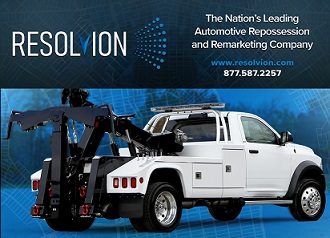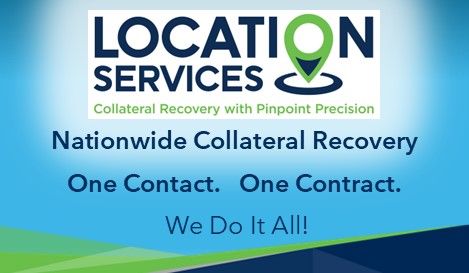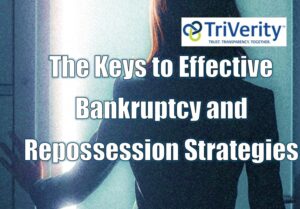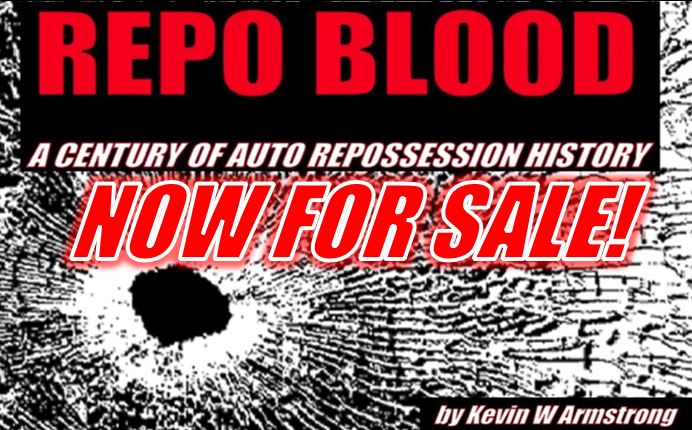October 10, 2017 – The year was 2006: the first internet account management software was introduced into the repossession industry. Since that time, the purveyors of different electronic account management systems have been in an all-out economic “war” to corner the market on connecting lenders with repossessors through their own proprietary software systems.
One of the largest competitors in this battle for the business of repossessions is MBSi Corp. (formerly known as MBSi Capital Corp.), which began in 2000, developed a repossession account management software known as Re-Pros in 2003, and was acquired by Agero in 2014. Currently, MBSi Corp. offers at least five different software tools to different aspects of the repossession industry. The most recent of those tools is the Recovery Connect App Exchange platform.
Many business owners associated with the repossession industry will recall that in November of 2016, some forwarding companies, attempted to impose upon all repossession agencies working for Santander Consumer USA, Inc. and Chrysler Capital through these forwarding companies, to subscribe to, pay for, and use the Recovery Connect platform in order to retain their status as a contractor/vendor on these accounts. (Chrysler Capital is a registered trademark of FCA US LLC and is licensed to Santander Consumer USA Inc.) Fortunately for the industry, Allied Finance Adjusters and other voices of reason posed many questions and asked about so many issues emanating from the mandatory use of the platform that the mandate by these forwarding companies was never fully enforced. It seems, now, that the tactic has resurfaced and only the force of the mandate has changed!
In June of 2017, the forwarding companies—this time accompanied by a litany of other forwarding companies who “appear” to be independent from each other—again sent out word to its contractor/vendors that the Recovery Connect platform is a mandated expense and (in our opinion) risk every repossession agency must take in order to retain its work for Santander Consumer USA, Inc. and Chrysler Capital. And the way they intend to make the mandate “stick” this time is by accepting only one brand of certification/training course and continuing education which, by the way, can only be accessed through the Recovery Connect platform in order to be considered by the lender. The mandate initially had an August 1, 2017 (approximately 60 days) deadline for each agency to have every single employee certified (and up-to-date on continuing education by January 1, 2018). In August, that certification deadline was extended to October 1, 2017.
Keep in mind that: (1) repossessor training and certification courses have been available and professionally offered in the industry since the early 1980’s; and (2) a handful of those programs have been successfully vetted and approved by state governments, state and federal courts, and major and minor lenders across the country for at least two decades. Yet somehow Santander Consumer USA, Inc. settled on a single training program and determined that the program could only be accessed through a single platform ‘in order to insure proper training for repossessors’!
Why?
The answer is not heavily veiled! And it has very little to do with the chosen certification and continuing education program. Santander is attempting to tilt the playing field in the repossession industry by using strong-arm tactics to further squelch the free market choice of the players and further divest itself of the expense of compliance.
The chosen training program is the Certified Asset Recovery Specialist (CARS) program offered by Recovery Industry Services Company (RISC). Do not be confused. This is a very respectable program offered by a very respectable company. If it wasn’t, the program would not have withstood the tests of time and scrutiny it has undergone. Anyone asking, “Why did Santander choose CARS and RISC?” is absolutely asking the wrong question!
Those paying attention in the repossession industry have already read the CUCollector Editorial Responses from Mr. Joe Taylor and Mr. Mark Lacek to concerns already voiced about this most recent mandate. The reasons anyone would choose CARS and RISC are written there in black and white. But neither of these editorials addresses the appropriate question, either. The problem is not with Santander choosing CARS and RISC. The problem is Santander choosing ONLY CARS and RISC.
As stated earlier, there are a handful of (“quite a few”; “more than three”; “some”) other also-good, also-respectable, also-effective and also-vetted certification and continuing education programs in the repossession industry that are available to, and used, by highly qualified, very professional repossession businesses. A huge majority of the repossession agencies that are certified and continually training with these other programs never create compliance issues for their clients. In fact, if the data on claims and compliance issues caused by agencies trained by each of the reputable programs was available, we would venture a guess that the other programs fare at least as well as the program chosen by Santander. However, the attempts by other program(s) to compete for approval by Santander, Chrysler Capital, and their forwarding companies, has (as of the time of this writing) been met with stony silence.
Additionally, the questions and concerns we raised at the end of 2016 regarding the Recovery Connect platform, its security, its compliance and its expense to our Members, have still not been addressed.
In 2013, Santander Consumer USA wrote “An Open Letter to the Repossession and Recovery Industry”. The stated purpose of the letter was to allow Santander to “redefine relationships” and “set the record straight about why we do what we do in our recovery and liquidation business…” The letter made reference to the facts that the Consumer Financial Protection Bureau had entered the banking oversight arena, and that compliance at the federal and state levels was a growing responsibility of the lenders and large companies. Specifically, Santander wrote:
We will continue to do the heavy lifting with the CFPB and other government agencies to make sure the industry continues to operate with as much freedom and free-market sensibility as possible. Financial institutions bear the legal and audit costs to prove to government agencies that the recovery industry is not only an essential but respectable part of the auto finance industry. We will continue to be a fair and responsible ally of vendors and consumers. (emphasis added)
Santander closed the letter with a promise to repossession and recovery agencies that they would “ensure you are always part of our business conversations.” (emphasis added)
The questions that necessarily flow from this most recent Santander/forwarder mandate, then, include:
- Since there are more than one good and respectable choice for certification and continuing education, where is the freedom and fairness for repossession agencies to choose the program that works best for its own compliance agenda?
- Where is the free-market sensibility to which Santander was committed only four years ago?
- When was the business conversation with the industry about how a mandate such as this would unfairly effect the many small businesses that depend on Santander to provide jobs in their cities and towns?
- How did every company, save one, miss the conversation that resulted in this mandate?
- And what about those Recovery Connect issues and questions we posed back in 2016—including:
▪ The increased cost to the repossession agency?
▪ The risk to independent contractor status?
▪ Federal regulatory compliance issues in connection with the GLB, the FDCPA and UDAAP requirements for confidentiality, employer control over employees and data security?
Falling in line with this newest mandate will unquestionably cost repossession agencies more. Only the small number of agencies who had already “chosen” both the CARS program and the Recovery Connect platform will not bear increased expense to do business with Santander.
The free market has done a fine job of producing competitive, reputable, well respected choices for certification and continuing education in the repossession industry. To disregard all feasible options, and allow one large entity to remove the freedom of choice in a matter as important as compliance training and certification for small businesses across the nation is illogical and socialistic.
Yes, a large financial institution such as Santander Consumer USA, also has the free-market choice to contract with whom it will for services. But when that institution attempts to make its choice a rule of the competition that is forced on everyone with whom they do business, it is time for an official’s conference, or for the other players to take their ball and find a new field.












Facebook Comments